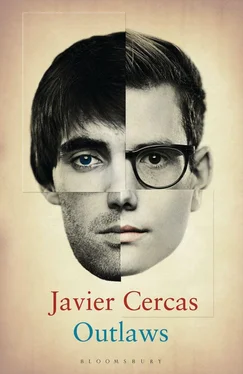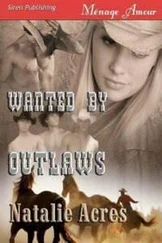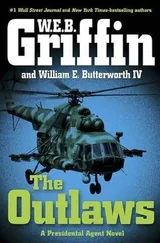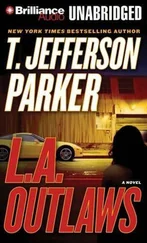‘And then he told me about Quílez, a long story that he later left out of his memoir and never told in any of the interviews he gave or any of the ones I’ve read, something which I at least found rather shocking because, as you know, Zarco told the journalists everything. What he told me is that the story had happened on his first day in prison, in the Modelo in Barcelona, at the time it would have been more or less a year before. He told me that afternoon, when he came out to the main courtyard at exercise time, he met two friends of his brother Juan José who’d been locked up in the prison for months (though not in the same cell block as him) and started talking to them. He told me the yard was full of prisoners calmly talking and walking and playing football. He said the calm shattered when the crowd seemed to stop all of a sudden while a circular wall of men formed in the middle of the yard, and in the middle of that wall was a blond, corpulent man, and in the blink of an eye another man, this one pale and very thin, hurled himself on him and, with a homemade stiletto fashioned from a mattress spring, with a single slash, opened his chest and then ripped out his heart and held it up in his hand, fresh and gushing blood in the afternoon sun. And he told me that as he displayed his trophy the murderer let out a long rejoicing shriek. He also told me that it all happened so fast that, before falling down dead, the victim didn’t even have time to shout in horror or for help. And he told me how the prison guards evacuated the yard and left the heartless corpse sprawled on the ground, and that he didn’t ask anyone anything but soon knew that the murderer’s name was Quílez and the murdered man was a guy reputed to be a snitch who’d arrived at the Modelo that very day, just like he had, except that he’d been transferred from another prison. And finally he told me — and when he told me this, I thought his voice trembled — that night, after the guards locked up Quílez in solitary confinement, his name was chanted in a righteous murmur that travelled through the cell blocks of the Modelo like a prayer or a triumphal lullaby.
‘When Zarco finished telling me the story of Quílez we sat in silence. After a few seconds he stood up and stretched and took a few steps away from the lighthouse towards the cliff, stuck his hands in his pockets and stood there for a while in front of the darkened sea and sky. Then, all of a sudden, he turned back towards me and spoke with an irritated look on his face. Look, Gafitas, I’m going to tell you, he began. You do whatever the fuck you feel like, but at least don’t say that I didn’t tell you. After a pause he went on: If it’s up to me, you can stay with us. You turned out to be tougher and more of a son of a bitch than you look like, so there’s no problem there. Do what you want. Now, he added, if you want my advice, drop it. He took his right hand out of his pocket and cut the air with a horizontal slash, much more violent than his words. Drop this, he repeated. Don’t come back to La Font or the district. Get lost, man. Forget the gang. Go back to your family, go back to school, go back to your life. There’s no more to this, don’t you see? You’ve already seen all there is to see. Sooner or later we’ll get caught, just like they caught Guille and the others. And then we’re fucked: if you’re unlucky you end up dead like Guille or in a wheelchair like Tío; and if you’re lucky you end up in the slammer, like Chino or Drácula. Although for a guy like you I don’t know which would be worse. I spent a few months in the slammer, but the slammer’ll crush you, it’ll be the end of you. That’s another reason you’re not like us. Besides, we don’t have a choice, this is the only life we have, but you have another one. Don’t be a dickhead, Gafitas: drop it.
‘That’s more or less what he said to me. I didn’t answer, in part because I had nothing to answer and in part, as I told you before, the conversation about Tere had made me uneasy, but especially because at that moment Tere showed up at the lighthouse with the news that the abandoned building was a Civil Guard post and the suggestion that we should check it out. It was almost dark by then. Zarco pointed the long, dirty fingernail of his index finger at me and said as if he hadn’t heard Tere’s suggestion: Think about it, Gafitas. I stood up. Tere looked at me; then she looked at Zarco. What does Gafitas have to think about? she asked. Zarco patted her on the ass and answered: Nothing. We went back to the Mehari and drove away.’
‘And that was the last time you and Zarco talked about Tere that summer.’
‘Yes.’
‘Did you consider leaving the gang after Zarco advised you to?’
‘Yes, I think so. Not because I wanted to leave, but because I had the suspicion that Zarco had advised me to leave the gang and return to my previous life to get me away from Tere, and that there was a threat hidden behind that advice. In any case he didn’t mention the matter again, and the truth is there was barely any time for me to consider it seriously: shortly after the conversation at Cap de Creus it was all finished.’
‘You mean the gang.’
‘Of course.’
‘When did it finish?’
‘In the middle of September, a couple of weeks after my parents got back from their holiday. That was the worst moment of the summer for me. On the one hand I felt increasingly ill at ease in the gang or in what was left of the gang, because that conversation with Zarco had injected me with the poison of distrust. On the other hand my relationship with my parents didn’t improve on their return; quite the contrary: after a few days of truce even the rows and shouting matches multiplied and worsened, especially with my father, who must have seen me as an unrecognizable and furious monster, full of contempt. I don’t know: now I think I probably felt trapped, and felt that everything could explode in those days at home or in the gang; finally everything exploded in the robbery of the Banco Popular branch in Bordils.
‘It was our last job and it was a disaster. The reason for the disaster is obvious. For a start it has to be said that we planned it all in no time and so clumsily that we didn’t even check out the branch and barely had a look around outside it. Add to this that the people who participated in the heist were not the best suited: we couldn’t count on Tere, who was in Barcelona because one of her sisters had just had a baby, and, after Zarco sounded out the district, Latas and some other guys, the one who ended up filling in for her was Jou, who’d never robbed a bank and had no experience with guns. And to top it off we were unlucky. . All this is true, but it doesn’t explain the disaster; the explanation is simpler: there was a tip-off. We never found out who it was, or at least I never found out. It really could have been anybody: any of the guys Zarco sounded out to participate in the heist, any of the guys those guys talked to, any of the guys we’d talked to. Keep in mind as well that all the bars of the red-light district were full of police informers, starting with La Font; there were also snitches at Rufus. We knew it and, although Zarco was always demanding discretion, the truth is we talked to too many people and too cheerfully. And the first to do so was me.’
‘Do you mean that it might have been you who let it slip?’
‘I’ve often thought so.’
‘Why?’
‘Because two days before the heist, when we were all set to go and just needed to find someone to take Tere’s place, I spent a couple of hours drinking beer with Córdoba while waiting for my friends in La Font. I’ve told you about Córdoba, right? I don’t remember what we talked about that day, but Córdoba and I were friends and I trusted him, although I’ve often thought since that he wasn’t trustworthy. I don’t know. It might have been him. Which is to say: it might have been me.’
Читать дальше












